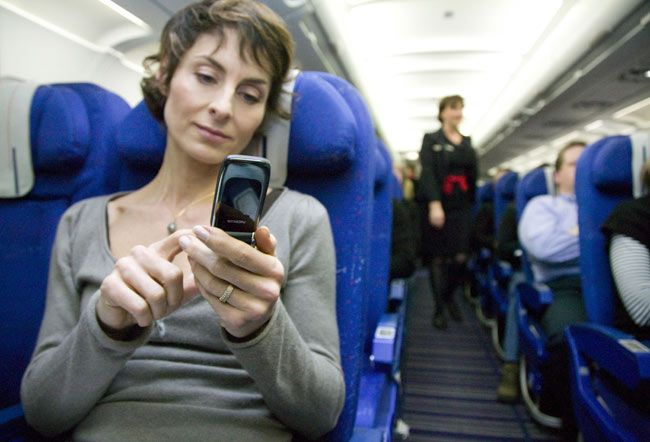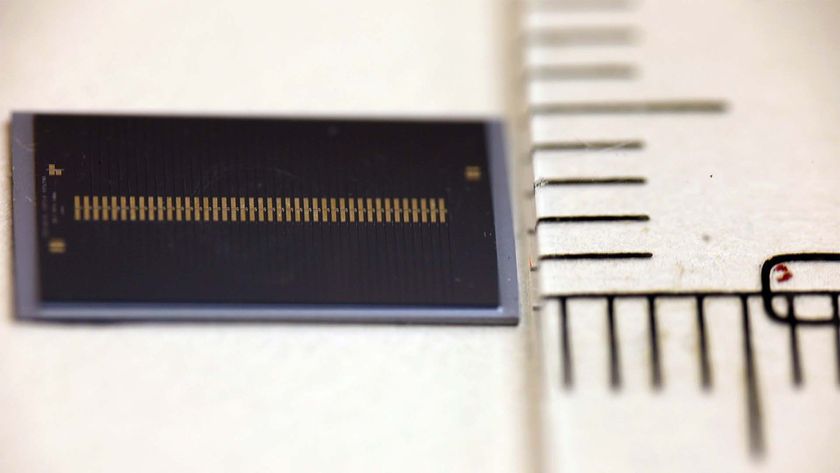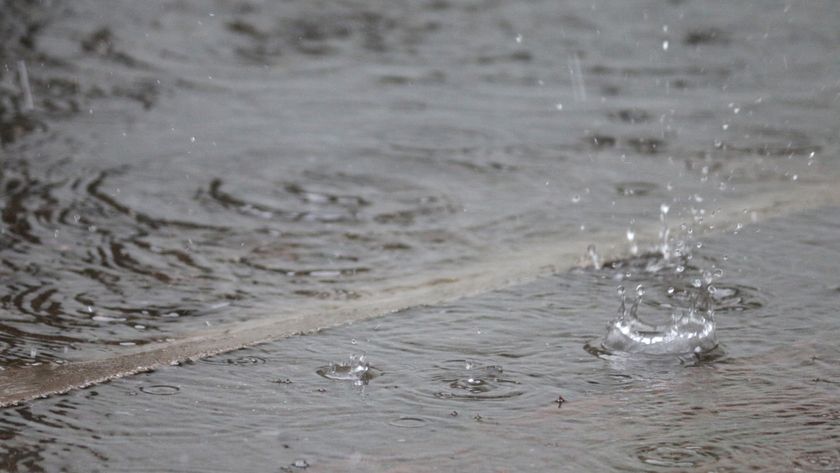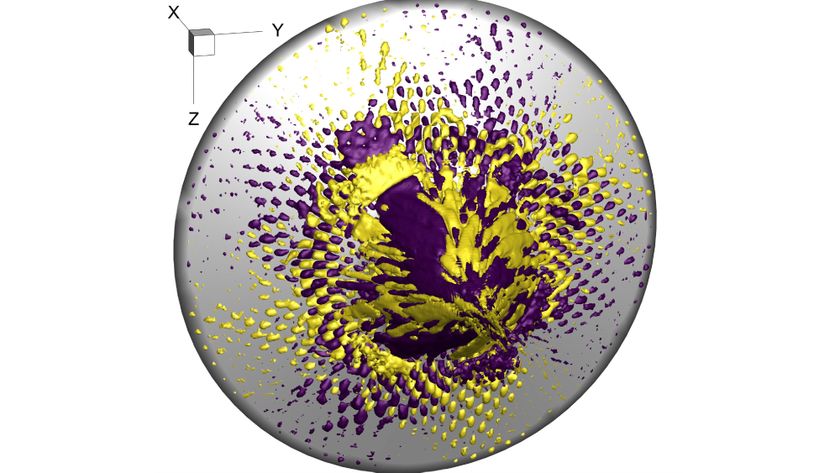The Real Reason Cell Phone Use Is Banned on Airlines

Airline passengers who sneak in cell phone calls, play with gaming devices or listen to their mp3 players during takeoff or landing probably won't cause a plane crash, but they may risk a confrontation with flight attendants. Federal agencies and airlines typically err on the side of caution — even though researchers and aircraft companies have found almost no direct evidence of cell phones or other electronic devices interfering with aircraft systems.
Frequent flyers know the familiar drill of only using certain electronic devices at cruising altitudes. The Federal Aviation Administration (FAA) asked the RTCA, an independent industry standards organization, to study the issue of electronic devices on airplanes in 1992. The RTCA found no interference and eventually recommended allowing the use of laptops, gaming devices and music players. Still, it suggested the precaution of banning the use of any and all devices during the critical takeoff and landing phases.
Boeing also investigated several cases in the 1990s where aircraft crews reported that laptop computers or gaming devices caused autopilot disconnects, uncommanded airplane rolls or instrument display malfunctions. The aircraft manufacturer was never able to replicate the reported anomalies in lab tests.
Cell phones and wireless devices such as laptops represent a different concern. They emit active transmissions on the electromagnetic spectrum, which is used by devices that include phones, radios and Wi-Fi networks. But the FCC divided the spectrum into different chunks for different uses, and so a cell phone call should not interfere with the bands reserved for aircraft communications or GPS navigation systems.
Wireless problems stay grounded
It turns out that the ban on wireless devices has a lot more to do with possible interference for ground networks, rather than any danger posed to aircraft systems. The Federal Communications Commission (FCC) banned in-flight use of most cell phones and wireless devices in 1991, citing the reason of ground network interference. FAA regulations uphold the FCC decision. But some airlines allow passengers to use cell phones in "airplane mode," which shuts off phone transmissions.
The FCC briefly considered lifting the in-flight ban on wireless devices, but eventually decided in 2007 to keep the current rules in place because there wasn't enough evidence to show whether in-flight wireless devices would cause harmful interference with ground networks. There also wasn't evidence demonstrating that the devices do cause interference, but the federal agency decided to play it safe. An RTCA report commissioned by the FAA in 2006 also cited a lack of evidence, and recommended keeping the current rules on electronic devices.
Sign up for the Live Science daily newsletter now
Get the world’s most fascinating discoveries delivered straight to your inbox.
All the regulations in the world still haven't prevented airline passengers from casually whipping out the cell phone every now and then. About one to four cell phone calls were made during every commercial flight, according to a 2006 study from Carnegie Mellon University in Pittsburgh.
Funnily enough, the FAA even had to advise aircraft crewmembers to turn off their cell phones during takeoff and landing, after an incident in early 2009. In that case, a first officer's ringtone proved potentially distracting during takeoff — but as the crew pointed out, their General Operations Manual did not prohibit them from keeping their cell phones on.
Getting your wireless fix
Travelers who can't part with their wireless Internet connections can now at least pay for in-flight access on a growing number of airlines, or take advantage of a free Wi-Fi holiday deal on Virgin American flights. Such services use a dedicated chunk of the electromagnetic spectrum reserved for air-to-ground communication.
Cell phone use remains out of the question during flights, and ditto for Internet voice applications such as Skype. But passengers can at least comfort themselves by knowing that their flight won't include anyone yammering loudly on a personal call. As the FAA notes, a majority of travelers probably prefer the silence.
- Americans Are Info-Junkies
- Wi-Fi in the Sky: In-Flight Internet Takes Off
- 10 Profound Innovations Ahead












